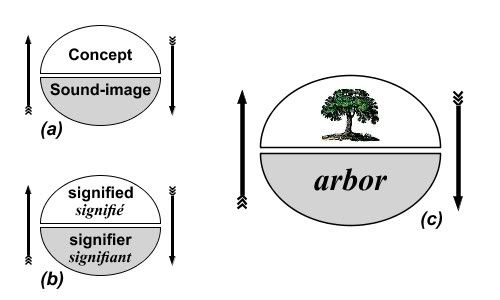Quote:
Originally Posted by Mantus

I recall reading about this but the material escapes me. Can you please point me in the right direction:
When we name or label something we take away some qualities.
or
When something is given a label the true essence is lost.
Thanks!
|
Do you recall whether it's an ancient philosophy or a modern one?
These statements are based on a long history of thought, tracing back all the way to
essentialism, based Plato's
idealism and
theory of forms: there is the object's form (which we label), which is distinct from the ideal (which we also label). A "tree" that we see in form is distinct from the ideal "tree," though they may have the same label.
In modern philosophy, there is Ferdinand de Saussure's theory of the
sign: language is made up of two sides, 1) the signifer, and 2) the signified:
Quote:
the signifier, the "shape" of a word, its phonic component, i.e. the sequence of letters or phonemes e.g. /kæt/
the signified, the ideational component, the concept or object that appears in our minds when we hear or read the signifier e.g. a small domesticated feline (The signified is not to be confused with the "referent". The former is a "mental concept", the latter the "actual object" in the world)
|
Visually:

Saussure's theories worked to distinguish between language (the sign) and that to which we refer (concept + sound-image) by pointing out the disparate components.
Tree is very basic, but words such as
war bring up some interesting problems. When I say "war," the concept will vary in my mind compared to when a Somalian refugee to Canada says the word.
I think maybe that's along the lines of what you are referring to: the difference between the word and the concept and how language poses a number of problems with regard to its relationship to concepts (or, basically, the essence of things).
Does any of this ring a bell?